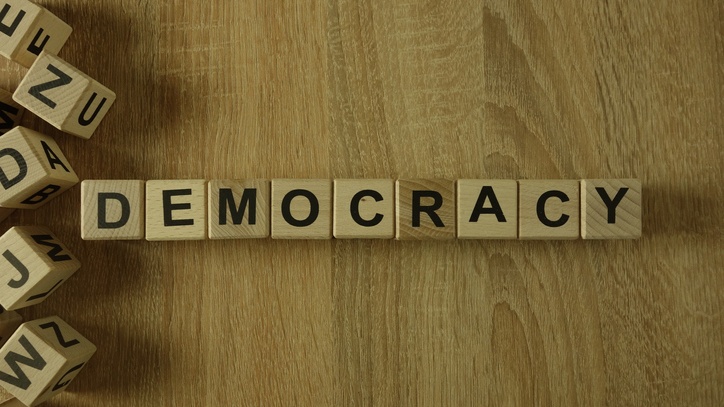An Alabama law, set into place in the early 1900s, barred Alfonzo Tucker Jr. from voting because he owed the state $4.
In the late 1980s, Tucker got into a physical altercation with a University of Alabama football player while in a club. He was convicted of a misdemeanor of third-degree assault, reports The Guardian. A few years later, he got into a fight with a police officer and in turn, was convicted of second-degree assault, which is a felony. He served a prison sentence of two years and was on probation for many more.
After being released from prison, Tucker worked to pay off the court-mandated $1,600 fee.
Alabama is one of 30 states which require people with felony convictions to pay off financial obligations associated with their sentence before they can vote again.
In order to further disenfranchise Black people, the government of Alabama passed the Permanent Plan in 1903 which states that anyone convicted of a crime of “moral turpitude” — or "an act or behavior that gravely violates the sentiment or accepted standard of the community" — will be stripped of their right to vote.
Tucker said the racist policies put in place back in the day are still affecting people like him today.
“I read about the challenges during the 60s, 50s, that Black people had to overcome just to vote,” Tucker told The Guardian. “It’s the same thing going on in 2020.”
Tucker had no interest in voting before prison, but while serving his sentence, he learned of Medgar Evers, a civil rights activist and the first state field secretary of the NAACP in Mississippi. Once he got out of prison, he began voting regularly.
He received a letter in 2013 stating he could no longer vote, but it did not inform him of the steps required to reinstate his registration. He did not act on it until his son received a letter a few years later, stating he was unable to vote. The letter was a mistake as they confused Tucker and his son, who have the same name.
As the 2018 midterm elections neared, Tucker was determined to get his registration back. He attended an event where activists were helping people with felony convictions learn about their voting rights. The volunteers contacted the board of pardons and paroles to get more information about Tucker’s case. Two weeks later the board notified him of a $135.10 balance he owed from his conviction. Tucker borrowed money from a family member to pay it off. He thought he was in the clear, but a courthouse clerk told him he owed an additional $5,535.47 from a criminal offense decades ago, which he had to pay off before voting again.
Tucker turned to a Campaign Legal Center attorney, Blair Bowie, who immediately realized Alabama made a mistake in Tucker’s case. To restore their vote, people with felonies only have to pay off the fee originally given as part of their conviction.
Tucker had paid off most of his debt by 2018, but the court still tacked on a $131.10 fee, which should not have affected his voting rights because it was added after the original conviction. The $5,535.47 fee was from a misdemeanor. He, in fact, only owed $4 in order to regain his right to vote.
“What is voter suppression if not officials wrongly telling you that you can’t vote?” Bowie said. “That’s been a classic way of disenfranchising people, particularly in Alabama.”
He paid the $135.10 fee but still could not cast a ballot. Tucker was eventually connected with John Paul Taylor, an organizer with the Southern Poverty Law Center, who contacted the board and got Tucker registered.
“Here’s a very clear example of a person who has jumped through every single hoop that you’ve given them and they’re still being denied because of something that they really don’t even know about,” Taylor said.
Tucker and his friend, Bill Foster, organized a group to help people with felony convictions restore their voting rights. They estimate they’ve helped about 10 people so far. Tucker plans to cast his first vote, since restoring his rights, this year.

